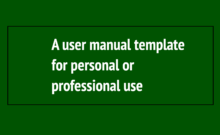As a consultant, your personal brand matters a lot. And a key component of your brand is your worldview. This is not simply a buzzword; it’s a guiding principle that influences your approach to business. Let’s break down what a worldview is, why you need one, and how it can help you attract customers. If you’re like most of my clients, you’re likely wondering, “What’s a worldview?”
What is a worldview?
A worldview refers to the beliefs, values, and principles through which you interpret the business world. It’s shaped by your professional journey, your personal experiences, and the insights you’ve gained throughout your career. For consultants, a worldview defines the lens through which you approach problem-solving, decision-making, and client interactions.
Why do you need a worldview as a consultant?
“A worldview? What is a worldview? And why do I need one as a consultant?”
That quote came from a former corporate executive I’m mentoring. He was at first confused about the very idea of a worldview but, when he learned what it was, appeared genuinely flummoxed at being told she needed one. After all, he said, her years in corporate had taught her that individualism was anathema to long-term success.
“What I think about an issue, the views I bring to the table, matters little,” he said. “I’m there to help my clients do what they need to do [strengthen the production of their teams].”
He was surprised to learn that, unlike in his corporate job, where there is a structure in place that sets expectations and is known, as a consultant, he has to set the tone, the expectations, and the correct course of action for his clients. They expect it and, most importantly, his viability as a consultant depends on it.

In meetings and calls, I said, you will be looked upon to share your perspective, not just on the challenges at hand, but business overall. For example, say your client is dealing with a rash of bad news surrounding layoffs. You’re the independent HR consultant, so they’ll be asking you about how you’ve helped clients successfully navigate such challenges, sure, but they’ll also want to know what your guiding philosophy is for issues such as these and others.
“They didn’t hire you to give textbook answers,” I said. “They hired you to give them a perspective outside of what they could find from any textbooks, with hopes that your unique worldview could help them better navigate the terrain.”
He finally got it.
You need a worldview for three distinct reasons:
- Clarity and focus: Aside from how it helps clients better understand your approach, first and foremost it helps you understand your own consulting and advising style, which creates consistency in how you approach various projects.
- Differentiation: In crowded markets, which you’ll often find yourself in, a distinct worldview makes clear your unique value proposition and helps to differentiate you from other consultants.
- Client alignment: The more clear your worldview, the easier it is to attract clients whose values and business philosophies align with yours. This makes client attraction and retention much easier.
The last point—about client attraction and retention—cannot be overstated. It’s the proverbial make-or-break of consulting. Most consultants need to speed 30% of their time on business development (biz dev), but if you’re spending most of your time chasing clients, it’s going to be impossible to build a successful business.
A sound, resonant worldview is a boon for client attraction and retention.
How a worldview helps consultants attract customers
If you’re a frequent readers of my blog, you’ve seen me write about the importance of what something—a strategy for example—does (help you acquire new customers or earn more revenue) as opposed to what it means (build alignment inside your brand). A worldview, too, is an intangible asset that helps your business grow in ways that are easy to measure quantifiably.
For example, it…
Establishes and fosters trust
When potential clients can clearly see and understand your worldview, they know what to expect from working with you. This transparency builds trust, as clients will feel confident that your approach aligns with their needs and expectations.
Builds a loyal client roster
Clients who resonate with your worldview are more likely to remain loyal to you and your business. They’ll feel a deeper connection to your consulting because they share similar values and beliefs, making them more inclined to return for future projects. Most important, they are also likely to refer you to other similar clients; this lessens the biz dev burden.
Positions you as a thought leader
Having a strong worldview and building willing to share it, especially online via social media, helps position you as an expert in your field. By consistently expressing your unique insights and perspectives, you establish yourself as a thought leader, which attracts clients seeking cutting-edge advice and guidance.
You have a worldview. Don’t be afraid to share it.
Having a well-defined worldview is crucial for consultants. It shapes your approach to business, differentiates you in the market, and attracts clients who are aligned with your values. By leveraging your worldview, you can establish trust, build loyalty, and position yourself as a thought leader, all of which are vital for attracting and retaining clients in the competitive consulting industry.





